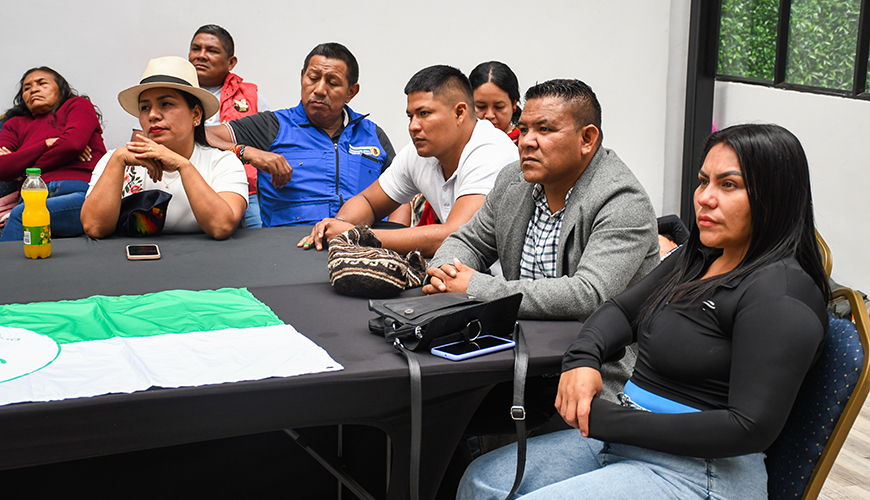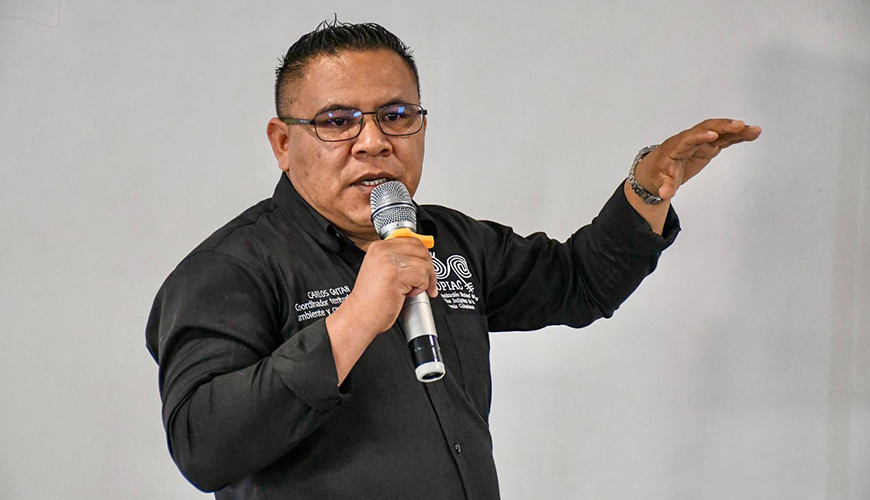The teacher and indigenous leader, Carlos Alberto Gaitán, brings the voice of the Piapoco people to the national stages, from where he defends the Amazon. Meet the coordinator of Territory, Environment and Climate Change, OPIAC representative to the IRI-Colombia Advisory Council.
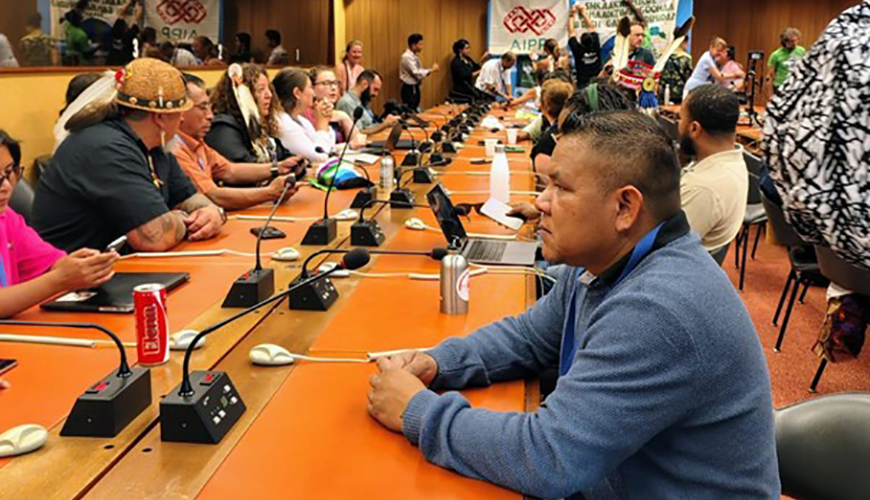
“Kanakanami analima, kanata nakia kaukeizi,” Carlos Alberto Gaitán energetically warns. It means “without forest there is no future” in the Paipoco language, the original language of the indigenous people of the same name, who live in the community of Minitas, in the Minitas-Mirolindo reservation, in Guainía.
This is where the indigenous leader, coordinator of the area of Territory, Environment and Climate Change, of the National Organization of Indigenous Peoples of the Colombian Amazon (OPIAC), and representative of this entity before the Advisory Council of IRI-Colombia, comes from.
Located on the banks of the Guaviare River, Minitas is home to about 1,500 inhabitants. Their life is developed around fishing, agriculture and subsistence hunting. “The Amazon is our mother and gives us everything: we get food from the river and from the forest we grow what is necessary to survive,” he says with the certainty that his word is not only his, but that of an entire people that resists, adapts and dreams of continuing to exist.
As a result of the evangelization process led by the evangelical missionary Sofia Müller, in the forties, the Piapoco people lost a good part of their cultural traditions. Although they do not currently practice their dances and rituals, they still retain some primordial ceremonies, such as the summer ceremony.
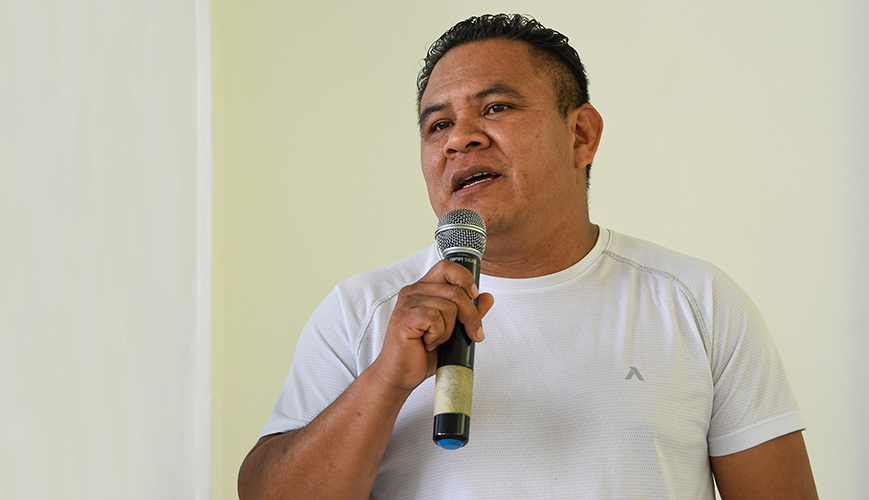
“However, we care about teaching our language from school. For our territory, the preservation of the language and practices such as fishing and hunting is important. If we forget them, we will not be able to survive,” clarifies the graduate in Ethnoeducation, from the Pontifical Bolivarian University, and specialist in Human Management.
Claiming their culture through education has been one of the main objectives of the indigenous leader, for more than twenty years, when he served as a teacher and director of different educational institutions in this region.
A people that resists
Being located in a strategic point for drug trafficking, her community was directly affected and faced forced displacement. After the National Army’s “Black Cat” operation, a large part of the population was forced to flee to other areas. That memory of uprooting left Carlos Gaitán with the certainty that protecting the territory is also defending the lives of its people.
Since he was a child he has stood out as a leader and his life has been marked by the responsibility of sustaining the legacy of his people: first as captain of the community, then as a governor, then as a teacher and director of educational institutions, and now as Coordinator of the area of Territory, Environment and Climate Change of the National Organization of Indigenous Peoples of the Colombian Amazon (OPIAC).
Elected at the Eighth Congress of OPIAC (2023), the Coordination accompanies the defense of 27 million hectares of forest that are under indigenous reservations.
“It’s half of Colombia,” stresses the leader, who took office in July 2023 and since then has been developing different projects to advance the autonomy of their governments and the protection of the Amazon rainforest. Among them the expansion of the reservations; the creation of the Indii Fund, a direct financing mechanism that seeks to support Amazonian indigenous peoples in the protection of their territories and the strengthening of their economies; and the implementation of the Indigenous Territorial Entities (ETI).
Having led the municipalization of Barrancominas, in 2019, is a thorn in his heart. According to Gaitán, this decision was made as a result of the lack of knowledge of norms that protect indigenous peoples, such as decree 632 of 2018, which implements the ETIs, and because of the critical situation that his community faced at that time.
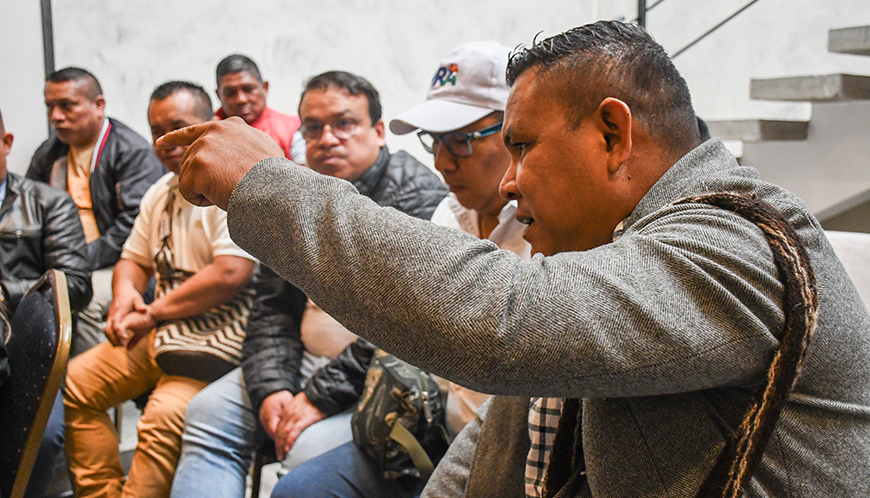
“After Operation Black Cat, Barrancominas was left alone, incommunicado, and only the subversive groups were visible. Municipalizing was the only option we saw to tell the presence of the State in the territory, but we did not analyze how it would affect us at the territorial level as indigenous peoples,” he explains.
Another of the projects carried out by the Coordination, through an agreement with the Ministry of Environment and Sustainable Development, is the creation of an intercultural risk management model. “We have our own knowledge systems, which allow us to know how to mitigate fire or floods. We also know the panorama of the region.” Creating this model will be very useful at the national level, because it will allow the articulation of ancestral wisdom with scientific wisdom to deal with disaster risk, said the leader of OPIAC.
A spiritual alliance for the Amazon
Since 2018, the National Organization of Indigenous Peoples of the Amazon has been part of the Advisory Council of the Interfaith Initiative for Tropical Forests. This alliance has been key to building bridges between indigenous and religious leaders from different traditions, all united by a common purpose: to stop deforestation and protect the Amazon’s tropical forests.
“IRI-Colombia has a clear vision for the protection and conservation of natural resources in the Colombian Amazon. There we found a similarity, a common path,” said the Piapoco leader.
According to Gaitán, the work carried out by the religious leaders who make up the local chapters of IRI-Colombia is valuable, because faith helps raise awareness about the importance of caring for the environment. “The human world must be aware that it is not only about exploiting, exploiting, and exploiting natural resources. We already see the consequences, we see how the climate has changed drastically,” he stressed.
Sitting at home in Inírida, after a four-hour bongo ride down the Guaviare River from Minitas, Carlos speaks slowly. He knows that every sentence he says carries the echo of his people, who have a simple and firm conviction: the Amazon must be protected.
In her voice resonate the waters of the Guaviare River, the classrooms where she taught children to read in Piapoco and the assemblies where indigenous peoples discuss their destiny. It is the voice of a man who learned to lead by listening and who today, from the heart of the Amazon, reminds us of something essential: without forests there is no future and without indigenous peoples forests will not survive.
